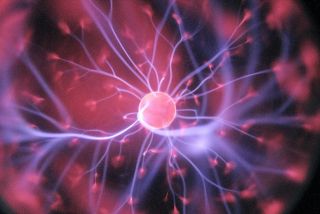Neuroscience
Why GABA Is Important for Well-Being
How the brain chemical works and why it’s important for your health.
Posted May 6, 2024 Reviewed by Gary Drevitch

By Nathalie Boutros, Ph.D. and Tchiki Davis, M.A., Ph.D.
The brain is an almost inconceivably complex system of billions of neurons interlinked via trillions of connections that work to coordinate everything you do, think, and feel (Zimmer, 2011). This system works via the chemical regulation of electrical activity. Chemicals called neurotransmitters are created in one brain cell and released into the tiny space between brain cells, called the synaptic cleft. When the neurotransmitter binds to the neuron on the other side of the synaptic cleft, that post-synaptic neuron may change in some way.
Neuroscientists are continuing to discover just how brain cells communicate with one another. Over 40 known chemicals act as neurotransmitters. These different chemicals have different effects on brain cells and are present in different concentrations in different parts of the brain. For example, glutamate is the brain’s primary excitatory neurotransmitter; it has the effect of making individual neurons more likely to generate electrical impulses. In contrast, Gamma-aminobutyric Acid, or GABA, is an inhibitory neurotransmitter; it has the effect of making individual neurons less likely to generate electrical impulses.
What Is GABA?
GABA is the brain’s primary inhibitory neurotransmitter (Buzsaki et al., 2007). When GABA is released, it’s almost like pressing on the brain’s brake pedals, slowing things down and limiting or preventing excessive neural activity. When GABA binds to a neuron, that neuron becomes less likely to generate an electrical impulse. The neuron then requires more contact with excitatory neurotransmitters to fire. This is a critically important job: Too much brain activity can lead to several negative effects including seizures and convulsions. Some of these negative effects may irreparably damage brain cells, sometimes even leading to death.
GABA deficits and excessive brain activity have been implicated in serious degenerative brain disorders like Huntington's, Parkinson's, and Alzheimer's diseases (Wong et al., 2003). Even when the effects of excessive brain activity aren’t deadly, they can still negatively impact health and well-being. For example, impaired GABA transmission and excessive brain activity may contribute to sleep disorders, depression, anxiety, ADHD, schizophrenia, and other mental health disorders. The inhibitory effects of GABA are necessary for a healthy, balanced, and well-functioning neural system.
As the brain’s primary inhibitory neurotransmitter, GABA is critically important to neural activity across the brain and plays a role in several different mental and cognitive processes. In the parts of the brain responsible for decision-making and cognition, higher concentrations of GABA are associated with better cognitive functioning in older adults (Porges et al., 2017). In the part of the brain responsible for visual perception and information processing, more GABA predicts better performance on a visual decision-making task (Edden et al., 2012). Similarly, in the part of the brain responsible for the coordination of movement, higher levels of GABA are associated with better performance on a tactile decision-making task (Puts et al., 2011). These results suggest that GABA is critically important to the healthy function of many different parts of the brain.
The Benefits of GABA
Impaired GABA functioning may be partially reversed by pharmacological or dietary interventions that increase GABA (Ngo & Vo., 2019). Some of the specific beneficial effects of increasing GABA may include:
- Improved sleep quality and decreased insomnia
- Antidepressant effects
- Relaxation and decreased anxiety
- Improved long-term memory
- Improved cognitive functioning
In addition to the beneficial effects of GABA within the brain, GABA may also have beneficial effects throughout the body:
- GABA may reduce hypertension and lower blood pressure.
- GABA and GABA-enriched foods may lower glucose, decrease insulin resistance, stimulate insulin release, and prevent pancreatic damage.
- GABA may slow or even suppress tumor growth.
- GABA may inhibit inflammation.
- GABA may limit the effects of histamines.
- GABA may have protective ffects on the kidneys and intestines.
It may seem counterintuitive that a chemical that slows down brain activity can be so important to a healthy and well-functioning neural system. Without the inhibitory neurotransmitter GABA to prevent excessive neural activity, brain cells would fire excessively, leading to tremors, convulsions, seizures, and eventual cell death. Although less dramatic, excessive electrical activity in the brain may also result in insomnia, anxiety, depression, hypersensitivity, hyperactivity, and impaired cognitive functioning. The presence of GABA within the brain works to counteract some of these distressing effects of excessive neural excitability. A balance between excitation and inhibition of electrical impulses is key to a healthy neural system and GABA is one of the keys to this balance.
A version of this post also appears on The Berkeley Well-Being Institute website.


